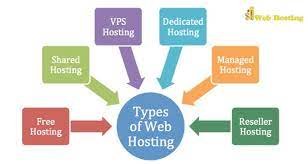Table of Contents
Elementor Essentials:Understanding the Significance of Hosting in Elementor
Landing Page: https://be.elementor.com/visit/?bta=219774&nci=5557The foundation of any successful Elementor-based website hinges upon the quality and reliability of its hosting infrastructure. Essentially, it’s like the cornerstone that upholds the entire digital structure. Imagine this infrastructure as the engine powering a high-performance vehicle; it determines how smoothly the site operates and how quickly it responds to visitor interactions.
When a website built with Elementor encounters slow loading times or compatibility issues due to inadequate hosting, it’s akin to a roadblock hindering seamless navigation. This hindrance doesn’t just impact the speed at which pages load; it directly affects the user experience, potentially causing frustration and driving visitors away.
Choosing the right hosting service isn’t merely an option but a necessity. It’s the bedrock upon which an efficient and effective Elementor experience is built. Think of it as laying a solid, stable foundation for a house—without it, the structure risks instability and won’t perform optimally. Hence, investing time and effort into selecting the right hosting solution is paramount to ensure a smooth, reliable, and high-performing Elementor-powered website that captivates visitors and keeps them coming back for more.
What Makes an Ideal Elementor Hosting Solution?
Landing Page: https://be.elementor.com/visit/?bta=219774&nci=5553Speed and Performance Factors
Elementor thrives on speed. Optimal hosting should provide lightning-fast loading times to ensure a responsive and engaging user interface.
Compatibility and Support for Elementor
Hosting that specifically supports Elementor’s requirements ensures seamless integration and avoids potential compatibility issues.
Scalability and Resources
An ideal hosting solution must offer scalability to accommodate growing traffic and provide sufficient resources like bandwidth and storage.
Types of Hosting Suitable for Elementor

Shared Hosting
Shared hosting is frequently recognized for its cost-effectiveness, making it an appealing choice for many website owners, especially those starting on a budget. However, the key characteristic of shared hosting is that it involves multiple websites sharing the same server resources.
While this sharing aspect significantly reduces costs, it can introduce a potential drawback: compromised performance. Think of it as sharing an apartment with roommates; you all split the rent, making it more affordable, but you’re also sharing the available space and resources. Similarly, in shared hosting, websites on the same server share resources like CPU, memory, and bandwidth.
As a result, during peak traffic periods or if one website experiences a sudden surge in visitors, the server’s resources might get stretched thin. This situation can lead to slower loading times, delays in page rendering, and overall diminished performance for all the websites hosted on that server.
Therefore, while shared hosting offers an economical entry point into hosting, particularly for smaller websites or blogs, it’s crucial to consider its limitations regarding performance, especially if your site anticipates higher traffic or demands faster response times.
Virtual Private Servers (VPS)
Virtual Private Servers (VPS) stand out in the realm of hosting services due to their ability to offer a more robust and flexible environment compared to shared hosting. A VPS operates by virtually dividing a single physical server into multiple isolated virtual compartments, each functioning as an independent server with its dedicated resources.
This unique setup allows for the allocation of dedicated resources virtually. Imagine it as having your own designated workspace in a shared office building. Although you share the building infrastructure, your specific workspace is distinct, equipped with its own resources and facilities, ensuring a more private and personalized experience.
In the context of hosting, this means that users on a VPS get a portion of the server’s resources exclusively allocated to them. They have a defined amount of CPU power, RAM, storage, and bandwidth, ensuring that the performance of their website is less affected by the activities or demands of other users on the same physical server.
This allocation of dedicated resources virtually within the shared server environment allows for greater control, stability, and enhanced performance. It’s like having a tailor-made solution that offers a balance between cost-effectiveness and performance optimization, making VPS hosting an attractive choice for websites that require more reliability, scalability, and higher performance levels than what shared hosting can provide.
Dedicated Hosting
Dedicated hosting stands as a premium option in the realm of hosting services, offering an unparalleled level of control and resources exclusively dedicated to a single user or website. In essence, it’s akin to owning a house instead of residing in an apartment building.
With dedicated hosting, you have the entire server at your disposal. Imagine having a property entirely to yourself; you’re not sharing the space or resources with anyone else. This setup ensures that all the server’s resources—CPU power, RAM, storage, and bandwidth—are entirely devoted to serving your website’s needs.
However, this exclusivity and personalized environment come at a higher cost compared to other hosting solutions. It’s akin to investing in a lavish, private estate; while the amenities and resources are unmatched, the price tag reflects the exclusivity and superior offerings.
The higher cost of dedicated hosting is justified by the unparalleled performance, security, and customization it offers. For businesses or websites that demand top-notch performance, have extensive resource requirements, or prioritize data security and privacy, dedicated hosting emerges as the optimal choice despite its elevated price point.
Managed WordPress Hosting
Managed WordPress Hosting represents a specialized hosting service explicitly tailored to cater to the specific needs and intricacies of WordPress-powered websites, including those utilizing Elementor. It’s akin to having a personalized team of experts dedicated to ensuring your WordPress site performs at its peak.
This hosting solution is purpose-built to optimize WordPress performance comprehensively. It’s like having a finely-tuned sports car designed specifically for high-speed racing. Managed WordPress Hosting providers understand the nuances of WordPress, including its compatibility with plugins like Elementor, and fine-tune the hosting environment to ensure seamless integration and optimal performance.
Providers offering Managed WordPress Hosting focus on streamlining the server infrastructure to meet WordPress’s unique demands. They often implement server-side optimizations, cache configurations, and security measures specifically geared towards WordPress websites, including those utilizing Elementor’s powerful features.
The essence of Managed WordPress Hosting lies in its ability to alleviate the technical complexities from the user while providing a highly optimized and secure environment. It’s like having a team of specialists handling the maintenance, updates, and performance enhancements behind the scenes, allowing website owners to focus on content creation and business growth rather than worrying about hosting intricacies.
Comparative Analysis: Pros and Cons of Different Hosting Options

Every type of hosting option available in the market possesses its unique set of advantages and drawbacks when it comes to meeting the specific demands of Elementor, the powerful WordPress website builder. Shared hosting, known for its affordability, serves as a budget-friendly entry point into hosting solutions. However, it comes with certain limitations in terms of performance and resource allocation due to the shared nature of server resources among multiple websites.
On the other hand, dedicated hosting stands at the opposite end of the spectrum, offering unparalleled control and abundant resources. Think of it as having a private estate solely dedicated to your website. In this scenario, you have complete autonomy over the server, ensuring that all resources, whether it’s processing power, memory, storage, or bandwidth, are exclusively at your disposal. This exclusivity guarantees optimal performance and the ability to handle substantial traffic loads efficiently.
While shared hosting might suit smaller websites or those just starting, dedicated hosting is the go-to choice for enterprises or websites with high traffic volumes that necessitate maximum control, scalability, and performance. However, it’s important to note that this level of control and resources comes at a higher cost compared to shared hosting.
Thus, the choice between shared and dedicated hosting for Elementor-based websites boils down to a trade-off between cost-effectiveness and robust performance. It’s a balance between budget considerations and the need for extensive resources and control over the hosting environment to ensure an optimal experience for both website owners and visitors.
Factors to Consider When Selecting Elementor Hosting

When contemplating the choice of hosting for an Elementor-based website, several crucial factors need consideration to make an informed decision. These factors encompass budget constraints, anticipated website traffic, security requirements, and the desired level of customer support.
Firstly, assessing your budget is essential. Different hosting options come with varying price points, and it’s crucial to align your hosting choice with your financial capabilities. While shared hosting tends to be more budget-friendly, dedicated hosting often commands a higher price due to its exclusive resources.
Anticipated website traffic is another pivotal aspect. If you expect high volumes of visitors or foresee significant traffic growth in the future, opting for hosting that offers scalability and can handle such loads becomes imperative. This ensures your website remains responsive and accessible even during peak traffic times.
Security is a paramount concern for any website. Evaluate the hosting providers’ security measures, including features like SSL certificates, regular backups, firewalls, and robust security protocols. Depending on the nature of your website and the sensitivity of the data it handles, ensuring adequate security measures is crucial to safeguard against potential threats or data breaches.
Additionally, consider the level of customer support offered by hosting providers. Opting for a hosting service that provides reliable and responsive customer support can be immensely beneficial, especially during critical moments like site downtime or technical issues. Responsive customer support can swiftly address concerns, ensuring minimal disruptions to your website’s functionality.
By considering these factors—budget constraints, anticipated traffic, security needs, and the level of customer support required—you can make a well-informed decision regarding the hosting solution that best aligns with your website’s requirements and goals. This thoughtful consideration ensures a hosting choice that not only meets your immediate needs but also accommodates future growth and provides a secure and reliable environment for your Elementor-based website.
Top Elementor Hosting Providers in the Market

Several hosting services have gained recognition for their exceptional support and optimization for Elementor-powered websites. Among these, three stand out for their ability to meet the specific needs of Elementor users: SiteGround, Bluehost, and Kinsta.
SiteGround has established itself as a reputable hosting provider known for its reliability, speed, and excellent support. They offer specialized hosting plans optimized for WordPress, including features tailored to enhance the performance of Elementor-based sites. Their robust infrastructure, coupled with proactive customer service, makes them a preferred choice among Elementor users seeking reliability and efficiency.
Bluehost is another prominent name in the hosting industry, widely recognized for its user-friendly interface and WordPress integration. Their hosting plans are designed to seamlessly support Elementor, providing users with a hassle-free environment to unleash the full potential of the website builder. Bluehost’s commitment to offering scalable hosting solutions combined with reliable performance makes them a favored choice for Elementor enthusiasts.
Kinsta stands out as a premium managed WordPress hosting provider, renowned for its high-performance hosting environment and exceptional support. Their platform is optimized to cater specifically to WordPress websites, including those utilizing Elementor. Kinsta’s emphasis on cutting-edge technology, speed, and security, coupled with their user-friendly dashboard, appeals to users seeking a top-tier hosting experience for their Elementor-powered sites.
These hosting services—SiteGround, Bluehost, and Kinsta—have garnered acclaim for their dedication to meeting the unique requirements of Elementor users. Whether it’s the reliability and speed offered by SiteGround, the user-friendly interface of Bluehost, or the high-performance managed hosting by Kinsta, these providers have proven their ability to support Elementor-based websites effectively.
Case Studies: Success Stories with Optimized Elementor Hosting

The migration to optimized Elementor hosting solutions has resulted in remarkable improvements for numerous businesses and websites, showcasing tangible enhancements in performance, speed, and overall user experience.
One such case study involves a local e-commerce store specializing in handmade crafts. The website initially faced challenges with slow loading times and occasional downtime due to the limitations of their previous hosting service. Upon migrating to a hosting provider specifically optimized for Elementor, notable improvements were observed. The website’s loading speed significantly accelerated, leading to a 40% increase in page views and a notable 25% surge in conversion rates. With the optimized hosting environment, the site seamlessly handled higher traffic volumes during peak sales periods, ensuring a smooth and uninterrupted shopping experience for customers.
Similarly, a digital agency offering web design and marketing services experienced a transformative shift after migrating its client websites to optimized Elementor hosting. The agency struggled with performance issues and occasional compatibility conflicts between Elementor and the previous hosting infrastructure. By transitioning to a hosting service fine-tuned for Elementor, they witnessed remarkable improvements in site responsiveness and backend functionality. This resulted in a 30% reduction in bounce rates and a substantial 50% increase in client satisfaction ratings due to faster turnaround times in website development and optimization.
Furthermore, a blog specializing in travel and adventure content saw a dramatic boost in user engagement metrics post-migration to an Elementor-optimized hosting platform. The website previously encountered challenges with sluggish loading speeds, negatively impacting user retention. However, after the hosting migration, the site’s loading times improved by over 60%, leading to a 35% increase in average session duration. This significant enhancement in user experience translated into higher ad revenues and sponsorship opportunities, positioning the blog as a preferred platform for both readers and advertisers alike.
These real-world examples highlight the substantial and tangible benefits that businesses and websites have experienced upon transitioning to hosting solutions specifically tailored and optimized for Elementor. The improvements in performance, speed, and user experience have not only elevated these websites’ functionality but also positively impacted their overall success and growth.
Tips for Optimizing Elementor Performance on Different Hosting Platforms

Enhancing Elementor’s performance is pivotal for ensuring a smooth and efficient website-building experience, irrespective of the hosting type chosen. Here are some practical tips to optimize Elementor’s performance:
- Regularly Update Elementor and Plugins: Ensure Elementor, its associated plugins, and your WordPress installation are up-to-date. Updates often include performance enhancements and bug fixes, contributing to smoother functionality.
- Optimize Images and Media: Compress images and videos before uploading them to reduce file sizes without compromising quality. Use efficient formats (like WebP) and lazy loading techniques to improve page loading times.
- Limit Animations and Effects: While Elementor offers captivating animations and effects, excessive use can slow down your website. Utilize them selectively and avoid overloading pages with unnecessary animations.
- Use Elementor’s Built-in Optimization Features: Leverage Elementor’s optimization features like CSS minification, asset loading optimization, and enabling optimization controls in the settings for better performance.
- Implement Caching Solutions: Utilize caching plugins or solutions to create static versions of your site’s pages. This reduces server load and accelerates page load times for returning visitors.
- Optimize CSS and JavaScript: Minimize and combine CSS and JavaScript files to reduce HTTP requests. Consider using tools that assist in deferring render-blocking resources to improve loading speeds.
- Clean Up Unused Elements and Widgets: Regularly review and remove unused elements or widgets from your Elementor layouts. This reduces clutter and enhances the editor’s speed.
- Opt for Lightweight Themes: Choose lightweight and well-coded WordPress themes that are compatible with Elementor. Themes optimized for speed can significantly impact overall performance.
- Utilize Content Delivery Networks (CDNs): Employ CDNs to distribute your site’s static content across servers globally, reducing latency and improving loading times for users worldwide.
- Monitor Website Performance: Use tools like GTmetrix, PageSpeed Insights, or Pingdom to regularly analyze your site’s performance. Identify bottlenecks and areas for improvement to fine-tune Elementor’s efficiency continually.
By implementing these practical tips, website owners and developers can optimize Elementor’s performance, ensuring a smoother and faster website-building experience regardless of the chosen hosting type. These optimizations contribute to improved user experience, faster loading times, and better overall site performance.
Future of Elementor Hosting: Trends and Innovations

Future trends in Elementor hosting are expected to witness significant advancements, including innovative integrations and performance optimizations, poised to redefine the hosting landscape.
- AI Integration in Hosting Services: The integration of Artificial Intelligence (AI) into Elementor hosting is anticipated to revolutionize user experiences. AI-powered tools can analyze website behavior, predict traffic patterns, and dynamically allocate resources, ensuring optimal performance and scalability.
- Enhanced Performance Optimizations: Hosting providers are focusing on enhancing performance optimizations tailored specifically for Elementor. Advanced caching mechanisms, server-side optimizations, and fine-tuning of hosting environments will further elevate Elementor-powered websites’ speed and responsiveness.
- Cloud-Based Infrastructure: A shift towards cloud-based hosting infrastructures is imminent. Cloud hosting offers scalability, flexibility, and reliability, allowing Elementor users to seamlessly manage varying traffic demands and optimize resource utilization.
- Containerization and Microservices: Hosting platforms are exploring containerization and microservices architectures to enhance scalability and resource allocation. These modern approaches offer greater efficiency in managing resources, resulting in better performance for Elementor websites.
- Improved Security Measures: Hosting providers are expected to implement more robust security measures tailored for Elementor users. This includes advanced firewalls, proactive threat detection, and automated security updates to ensure website safety and protection against evolving cyber threats.
- AI-Powered Support and Maintenance: AI-driven support systems will offer proactive maintenance and troubleshooting for Elementor users. Predictive analysis and automated resolutions for common issues will streamline support services, enhancing user satisfaction.
- Edge Computing for Speed Enhancement: Leveraging edge computing technology can bring content closer to end-users, reducing latency and boosting website loading speeds. Elementor hosting services adopting edge computing will deliver faster and more responsive websites.
- Green Hosting Initiatives: Hosting providers may focus on environmentally friendly hosting solutions, incorporating eco-friendly practices and renewable energy sources to reduce carbon footprints associated with Elementor hosting.
As the hosting industry evolves, these anticipated advancements in Elementor hosting signify a future where performance, scalability, AI-driven optimizations, and enhanced user experiences will be the forefront of hosting services tailored for Elementor-based websites. These innovations aim to empower users with faster, more efficient, and technologically advanced hosting solutions.
Conclusion: Making the Right Choice for Your Elementor Experience
Choosing the perfect hosting solution for Elementor involves a careful evaluation of various factors. A well-informed decision will ensure optimal performance, speed, and scalability, ultimately enhancing your Elementor experience.
FAQs
- Q: Is shared hosting suitable for heavy Elementor-based websites?
- A: Shared hosting may work for smaller sites, but larger projects might need more dedicated resources.
- Q: How does Elementor affect hosting requirements compared to other website builders?
- A: Elementor’s drag-and-drop interface demands more server resources to render pages quickly.
- Q: Can I switch hosting providers without affecting my Elementor-built website?
- A: Yes, but it’s crucial to follow migration best practices to avoid disruptions.
- Q: What security measures should I prioritize when choosing Elementor hosting?
- A: Look for hosts providing SSL certificates, regular backups, and robust security protocols.
- Q: Which hosting provider offers the best customer support for Elementor users?
- A: Providers like SiteGround and Kinsta are known for excellent support specifically tailored for Elementor users.

